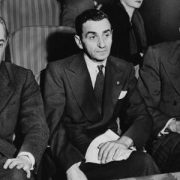Our two popular articles on voice over work for actors (see part 1 and part 2) have proved that ambitious performers out there are really interested in this career choice. Based on the response we received, there seem to be a significant amount of inquiries on how to start doing voice over for video games, and different mysteries surrounding this side of voice over acting career.
Not having enough knowledge on the subject, we went around asking working voice actors on what is it like to do voice over for video games and how difficult it is. Here’s the general advice and conclusions we were able to draw in the end.
How to Do Voice Over for Video Games
There is no denying that a career choice in any kind of voice work profession — voice over for video games included — requires a significant amount of passion and dedication to push one through the obstacles of rejection after rejection. Aside from that, and provided that the talent does have a suitable voice, an aspiring voice actor must also know all the ins and outs of the business and how the voice over industry works.
However, most voice actors working exclusively on video games, while mentioning the frustrations of the business, seemed to agree on one thing: “doing voice over for video games is a blast!”
Yes, it does require one to be a hardworking individual with love for the craft of voice over work, as well as video games. You do need to know all about this industry because there’s no way you can navigate in this huge labyrinth of talent, work, agents, rejection, lies and casting directors without a proper map.
But once this is sorted, and everything is combined, this concoction turns out to be one of the best career journeys one could ever embark on. “It’s just fun,” is what they say.
Video gaming is a business
And it’s a big business, too. In fact, it’s so big and growing so fast that professionals analyzing the entertainment industry predict that video games will outgrow the movie industry soon enough (it’s coming soon, is what they’re saying). And the bigger the business, the more people want to be a part of it.
Furthermore, the independent video gaming scene expanded significantly in the last couple of years, providing even more job opportunities for aspiring voice actors. So according to today’s statistics, thousands of actors are being employed every year by various development studios to do voice over for video games. And while the job opportunities are growing, the amount of competing actors beat that number, twice.
How does the industry of gaming voice over function
Voice over work is about versatility. Like we have discussed in A Career in Voice-Over Acting, it’s all about being able to do character voices and foreign accents. This in turn allows one actor to do 2-4 voices in one video game installment. But the triple-A games nowadays are big, involving a variety of different characters, which results in studios hiring from 30 to 60 voice actors for a single project. That’s a lot!
Aside from the ability to do character voices and accents, the most common requirement studios have is for male actors to be able to do a strong leading man’s voice: confident, smart and warrior-like.
Females aspiring to do voice over for video games — as the whole perspective is shifting since the beginning of the decade — should expect the developers to want to hear a leading-lady type of voice with clarity and some ambiance. However, there is still this belief going around that gamers often do not “trust” a woman’s commanding voice and therefore, female roles often end up being sidekicks.
How to break into doing voice over for video games
Most working actors say they just “got lucky” with their breakthroughs into this industry, thus there doesn’t seem to be a secret pathway of how to get there.
But even though most voice actors don’t know what it takes to “get this lucky”, there is some trend going on among them: they all started out outside of the video games industry. The beginning is usually voice over for student projects, small commercials, local radios, corporate and educational projects. This experience helps to find your voice and understand the industry.
It’s always advisable to keep your eyes on the prize; maintain your focus on the ultimate goal. And if this goal is “doing voice over for video games”, then every step taken within the voice over industry should bring an actor closer to accomplishing that task. What does this mean?
Set your priorities straight: 1) Do smaller projects for video games rather than bigger ones for corporate (money-wise). 2) Use today’s easily available technology to “get your voice heard“. 3) Get in touch with independent developers and offer your voice over work services for free. 4) Think of any other opportunities that you can build for yourself in order to progress.
Because of how big the pool of competition in video games voice over work is, one’s ability to find their own opportunities will be of the value of gold. We talked a lot more in how an actor can turn themselves into an “overnight success” without nepotism in our Acting in London handbook.
What the job of a voice over actor is like
Voice over for video games is similar to any other kind of voice work. Actors typically do their job closed in a sound-proof booth where they bring the text to life and record their one-liners or whole monologues. But while it is fun and might sound easy for an aspiring voice actor with little to no experience, this profession comes with its own challenges.
When hiring the talent, agents and casting directors prefer these voice actors to not only have a good voice and be able to switch up characters or do accents, but also act. And quite often, voice over work requires some serious acting chops from their performers. The widely popular video game The Last of Us comes as a good example of this, having great voice over work that at times required the actors to turn their dramatic skills way up.
Another tricky part when aspiring to do voice over for video games is that actors usually never see their sides (see the dictionary) ahead of the audition or work day, which means they have to be able to nail down the voices in a very short amount of time, on the day. There are exclusions to this rule: long dialogues involving multiple voice actors in the scene. In these cases, actors might be shown their scripts in advance.
The hardest part of doing voice over work
Be it voice over for video games, films, commercials, animation, or anything else, most actors mention the stress their vocal chords go through when doing this job. The most demanding parts in video games are those of leading men, constantly shouting and screaming, and having the longest dialogues (but also the biggest paycheck). Sometimes this process takes from two to five hours, so it’s not difficult to imagine how stressful it can get in a long run.
Whether a voice actor is going to have a positive or negative experience on such projects mostly depends on the directors. Some of these professionals are more understanding towards voice actors and will end the day before an actor has screamed their lungs out, while others will give the longest monologues, ask for the loudest and most demanding performances, and after four hours — they will ask to repeat it.
It’s all about the endurance and how long a voice actor can keep their vocal range steady, but veteran actors find ways to work around this. That, and you also must learn all the tricks of the trade of how to take a good care of your vocal chords whether you’re doing voice over for video games or animation; it’s all the same when you feel like losing your voice altogether.
Can gaming voice actors progress into other parts of the industry
There seems to be a debate going around about whether voice actors doing voice over for video games work expand their range and receive new opportunities, or did this career turn possibly hurt their future as voice actors.
The truth is like this: even the most experienced actors find it difficult to answer this question because most of these voice over work veterans seem to be comfortable in the video games industry. Once they get their breakthrough and start receiving different offers for interesting parts in video games, there is little reason for them to leave, and the fat paycheck from triple-AAA games studios is definitely not one of them.
That, and video games voice actors seem to “enjoy” quite a bit of fame compared to veteran actors in the animation, where most of them are still unknown after doing this for 30 years. This is easily explained by how dedicated and big the video games fan base is, which always stays loyal to their favorite voice over actors.
For more in voice over for video games, stay on top of our Voice-over topic updates.
 To receive more advice on acting business and craft from the acting community, please subscribe to our newsletter and join us on Facebook, Google+ and Twitter.
To receive more advice on acting business and craft from the acting community, please subscribe to our newsletter and join us on Facebook, Google+ and Twitter.





